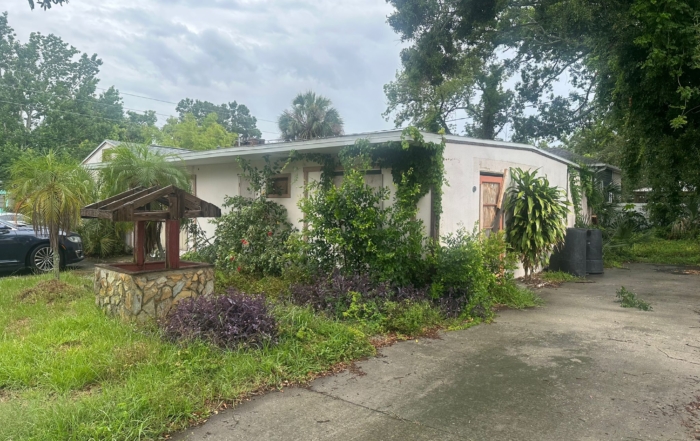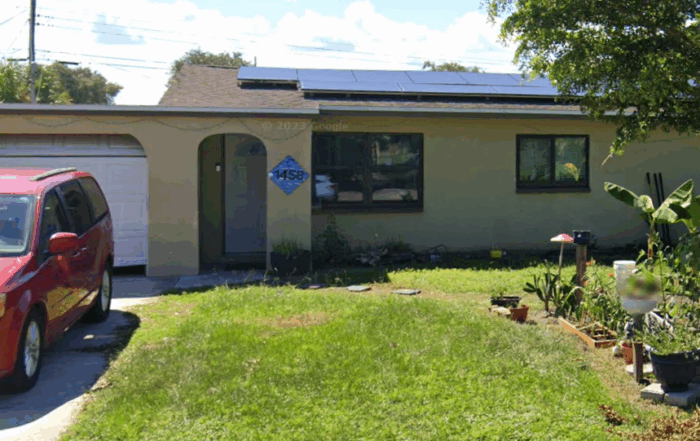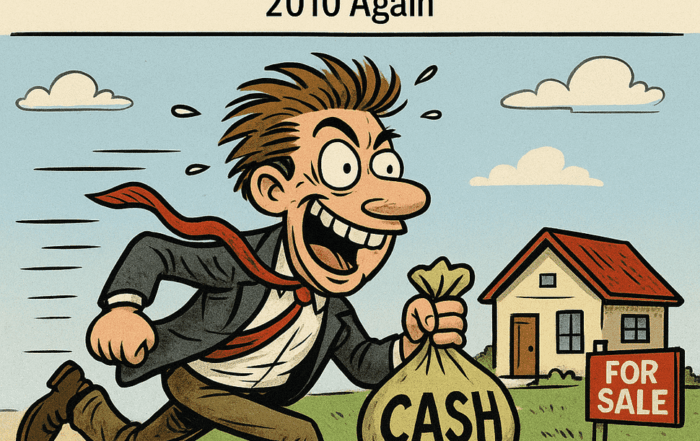
Author: Jorge Vazquez -CEO
Condos: The New Dictatorship
Introduction
Investing in real estate is a complex decision that involves evaluating numerous factors such as location, potential returns, management responsibilities, and long-term growth. One segment of the real estate market that has gained significant attention is the condominium. Condos are often perceived as lucrative investments due to their attractive amenities and prime locations. However, condos can sometimes feel like a “new dictatorship,” with homeowners associations (HOAs) wielding significant power over property owners, leading to unexpected challenges and financial burdens. This article explores the pitfalls of investing in condos, why they may not be the ideal choice for all investors, and alternative investment strategies that could offer better returns and greater control.
The Allure of Condos
At first glance, investing in a condo appears to be an attractive option. Condos are often located in desirable areas, offer a range of amenities such as pools, gyms, and security, and require less maintenance than single-family homes. For investors looking for a more passive investment, condos can seem like a dream come true, especially with the option for short-term rentals that promise higher yields.
For example, luxury condos in tourist hotspots like Miami or Hallandale Beach are marketed as high-return investments due to their proximity to beaches, entertainment, and nightlife. The convenience of having everything managed by the HOA—from landscaping to building maintenance—adds to the appeal, particularly for investors who may not have the time or inclination to deal with the day-to-day responsibilities of property management.
Moreover, the idea of owning a piece of property in a highly desirable location with the potential for appreciation over time is a compelling prospect. Many investors are drawn to the idea of generating passive income through rental properties without the hassle of managing a single-family home, which can require more upkeep and personal involvement.
The Hidden Costs: HOAs and Special Assessments
However, what many investors overlook are the substantial fees associated with condos. Homeowners Association (HOA) fees can be a significant financial burden. In the case discussed by Robert Rivera on a real estate forum, the HOA fee for a luxury condo in Hallandale Beach is $1,100 per month—a considerable amount that can quickly erode potential profits. These fees are meant to cover the costs of maintaining the common areas, amenities, and the overall condition of the building. However, they can be surprisingly high, especially in upscale properties with extensive amenities.
These fees are also subject to change and can increase over time, further impacting your returns. The HOA has the authority to raise fees as needed to cover unexpected costs or to build reserves for future repairs. For instance, if the building requires significant maintenance, such as roof replacement or elevator upgrades, the HOA may decide to increase fees to cover these expenses. These increases can be unpredictable and are often beyond the control of individual property owners.
Special assessments are another hidden cost that can catch condo owners off guard. HOAs have the authority to levy these assessments to cover unexpected expenses such as major repairs or improvements to the property. These costs are often mandatory, leaving owners with little recourse but to pay up. For example, if a major repair is needed for the building’s infrastructure, such as plumbing or electrical systems, the HOA may issue a special assessment that each owner must pay, regardless of whether they have the funds available. This can result in a significant financial burden that can disrupt an investor’s cash flow.
The Loss of Control
One of the most significant downsides of owning a condo is the loss of control over your investment. HOAs have the power to dictate how you can use your property, including restrictions on rentals, renovations, and even the color of your door. As noted by several seasoned investors in the discussion, including Jorge Vazquez, these restrictions can feel like a dictatorship. They limit your ability to maximize your investment’s potential and can turn a once-promising venture into a frustrating experience.
HOAs are governed by a board of directors, typically made up of condo owners who volunteer to manage the community’s affairs. While this may seem like a democratic process, in reality, it can lead to power struggles and decisions that may not align with the interests of all owners. For instance, the board may impose new rules that restrict your ability to rent out your unit, limiting your potential income. They may also decide to undertake expensive projects that require additional contributions from owners, further straining your finances.
Moreover, HOAs often have the right of first refusal on any sale of a condo unit. This means that when you decide to sell your condo, the HOA has the option to purchase it before you can sell it to an outside buyer. While this is intended to help maintain property values by keeping undesirable buyers out, it can also be used to block sales that the board deems unfavorable. In some cases, the HOA may refuse to buy the unit or allow you to sell it, leaving you stuck with a property you no longer want.
A Personal Nightmare: The Power of HOAs
In my 20 years of investing, one of my first nightmares early on was dealing with an HOA that held my mom hostage to a super distressed property, but the monthly fees had quadrupled. To my surprise, the condo HOA had the right of first refusal when selling. When I tried short-selling my mom’s property, the HOA refused to buy it or allow me to sell it. These were super shady tactics that left us trapped, unable to make a move. This experience taught me firsthand the dangers of investing in condos and the immense power HOAs can have over property owners.
This personal experience highlights the extent of control that HOAs can exert over property owners, often leading to situations where investors feel trapped by their decisions. The inability to sell a property or escape mounting fees can turn a once-promising investment into a financial nightmare. This lack of control can be particularly frustrating for experienced investors who are used to having more autonomy over their properties and investment strategies.
Market Vulnerability and Slower Growth
Condos are also more susceptible to market fluctuations compared to single-family homes or multifamily properties. Their value is closely tied to the performance of the local market and the decisions made by the HOA. For instance, if the HOA decides to impose stricter rental restrictions, it could significantly decrease the condo’s market value, making it harder to sell or rent out. This vulnerability to market conditions and HOA decisions makes condos a riskier investment, particularly in markets that are prone to volatility.
Furthermore, condos typically experience slower appreciation compared to other types of real estate. This slower growth can be attributed to the fact that the condo’s value is not just dependent on the unit itself but also on the overall management and financial health of the entire complex. Poor management or a large number of foreclosures within the complex can drag down property values, impacting your return on investment.
In contrast, single-family homes and multifamily properties tend to appreciate at a faster rate, particularly in growing markets. These properties offer more flexibility and control, allowing investors to make improvements that can directly increase the value of the property. Additionally, single-family homes are often in higher demand, making them easier to sell or rent out, even in challenging market conditions.
The Impact of HOA Mismanagement
The performance of a condo investment is heavily influenced by the effectiveness of the HOA. When the HOA is well-managed, the property can thrive, with well-maintained common areas, efficient handling of repairs, and a strong financial reserve. However, when the HOA is poorly managed, the property can suffer, leading to deferred maintenance, financial shortfalls, and declining property values.
Mismanagement can take many forms, from neglecting necessary repairs to making poor financial decisions that deplete the HOA’s reserves. In some cases, HOAs may engage in costly legal battles that drain resources and lead to special assessments for owners. Additionally, if the board is unresponsive to owner concerns or operates with a lack of transparency, it can create a toxic environment that drives down property values and deters potential buyers.
For example, a poorly managed HOA may fail to address maintenance issues in a timely manner, leading to a deterioration of the building’s condition. This can result in costly repairs down the line, which are often passed on to owners through special assessments. Furthermore, if the HOA does not maintain adequate financial reserves, it may struggle to cover unexpected expenses, leading to increased fees or the need to take out loans, which can further erode property values.
Legal Challenges and Condo Ownership
Condo ownership can also expose investors to a range of legal challenges, particularly when it comes to disputes with the HOA. Legal issues can arise over a variety of matters, including disputes over fees, violations of HOA rules, and disagreements over the management of the property. These legal battles can be time-consuming and costly, often requiring the involvement of attorneys and court proceedings.
One common legal issue involves disputes over the interpretation of the condo association’s governing documents, such as the declaration of covenants, conditions, and restrictions (CC&Rs). These documents outline the rules and regulations that owners must follow, as well as the powers and responsibilities of the HOA. However, the language in these documents can be vague or open to interpretation, leading to disagreements between owners and the HOA.
For instance, an owner may believe that they have the right to make certain improvements to their unit, while the HOA may argue that these changes violate the CC&Rs. In such cases, the dispute may need to be resolved through arbitration or litigation, which can be a lengthy and expensive process. Additionally, even if an owner prevails in court, they may still be responsible for paying their own legal fees, as well as any fees assessed by the HOA.
Alternative Investment Strategies
Given these challenges, many experienced investors recommend steering clear of condos, especially those with high HOA fees. Instead, they advocate for investing in small multifamily properties or single-family homes in stable, growing markets. These investments often offer better control, higher appreciation rates, and fewer restrictions, making them a more reliable choice for long-term growth.
Small Multifamily Properties
Small multifamily properties, such as duplexes, triplexes, and fourplexes, offer a balance between scalability and manageability. These properties allow investors to spread risk across multiple units while still maintaining a level of personal control that is often lost in condo ownership. For example, if one unit becomes vacant, the income from the other units can help offset the loss, reducing the overall financial impact. Additionally, small multifamily properties typically do not have the same level of HOA interference, giving investors more freedom to manage their properties as they see fit.
Investing in small multifamily properties also provides opportunities for value-add strategies, such as renovations or improvements, which can increase both rental income and property value. This is in stark contrast to condos, where the ability to make meaningful improvements is often limited by HOA rules. Furthermore, because small multifamily properties are often located in residential neighborhoods, they tend to appreciate more steadily and can be easier to finance than larger commercial properties.
Single-Family Homes
Single-family homes remain one of the most popular and accessible real estate investments. These properties are often easier to finance and manage, and they offer a level of flexibility that condos and even small multifamily properties do not. Investors can choose to live in the property while renting out part of it (house hacking), or they can rent the entire home to generate income. Single-family homes also generally experience higher appreciation rates compared to condos, making them a solid choice for long-term investment.
One of the key advantages of single-family homes is the absence of HOA fees and restrictions. This allows investors to make decisions about their property without needing approval from a governing body, providing greater autonomy and the ability to respond quickly to market conditions. Additionally, single-family homes tend to have lower vacancy rates and attract long-term tenants, which can lead to more stable cash flow.
Out-of-State Investing
For investors who are open to expanding their horizons, out-of-state investing can provide access to markets with higher returns and more favorable conditions. While this approach requires more research and due diligence, it can be a valuable way to diversify a real estate portfolio and mitigate the risks associated with local market downturns. By investing in states with lower taxes, higher population growth, and strong job markets, investors can achieve better cash flow and appreciation than they might in their local area.
However, out-of-state investing does come with its own set of challenges, such as managing properties from a distance and navigating unfamiliar legal and regulatory environments. To mitigate these risks, investors should consider partnering with local property management companies or real estate agents who have experience in the target market. These professionals can provide valuable insights and help ensure that the investment runs smoothly.
The Importance of Diversification
Diversification is a fundamental principle of investing, and real estate is no exception. By spreading investments across different property types and geographic locations, investors can reduce their overall risk and improve their chances of achieving steady returns. While condos may have a place in a diversified portfolio, they should not be the sole focus, given the risks and limitations discussed earlier.
For example, an investor might choose to allocate a portion of their portfolio to single-family homes in a growing suburban market, while also investing in small multifamily properties in an urban area with strong rental demand. Additionally, they might explore opportunities in emerging markets or even international real estate, depending on their risk tolerance and investment goals. By maintaining a diverse portfolio, investors can weather market fluctuations and capitalize on opportunities as they arise.
Understanding Your Investment Goals
Ultimately, the decision to invest in condos or any other type of real estate comes down to understanding your investment goals and risk tolerance. Condos can be a viable option for certain investors, particularly those looking for a more hands-off investment or who are interested in specific markets where condos are in high demand. However, for those seeking greater control, higher appreciation potential, and fewer restrictions, alternative investment strategies such as single-family homes, small multifamily properties, or out-of-state investments may be more appropriate.
Before making any investment decision, it’s crucial to conduct thorough research and consider all the factors that could impact your investment’s success. This includes not only the financial aspects but also the level of control you will have over the property, the potential for appreciation, and the risks associated with market fluctuations and HOA involvement. By carefully weighing these factors, you can make informed decisions that align with your long-term investment strategy.
Conclusion
While condos may seem like an appealing investment at first, the reality is that they come with significant risks and limitations. High HOA fees, special assessments, and the loss of control over your property can turn what appears to be a profitable investment into a financial headache. For investors looking for more reliable returns and greater control, exploring other real estate options such as single-family homes, small multifamily properties, or out-of-state investments may be a wiser choice.
Investing in real estate requires a careful balance of risk and reward, and the best investments are those that align with your goals and offer a level of control and predictability that suits your needs. Condos, with their potential for high fees and restrictive rules, may not be the ideal choice for all investors. By considering alternative strategies and staying informed about market conditions and potential pitfalls, you can build a real estate portfolio that offers both stability and growth.
Before making any investment decision, it’s essential to thoroughly research and consider all the potential downsides—after all, the last thing you want is to feel like you’ve bought into a “new dictatorship.”
How Does a Property Flipper Make a Profit in 2025?
Jorge Vazquez2025-07-11T20:16:48+00:00July 11th, 2025|Comments Off on How Does a Property Flipper Make a Profit in 2025?
How Does a Property Flipper Make a Profit in 2025? By Jorge Vazquez, CEO of Graystone Investment Group It's been four years since I first wrote that viral Forbes piece, and I still get [...]
The College Rental That Nearly Schooled the Landlord: Lessons from Bradley’s Student Housing Fiasco
Jorge Vazquez2025-07-10T19:32:35+00:00July 10th, 2025|Comments Off on The College Rental That Nearly Schooled the Landlord: Lessons from Bradley’s Student Housing Fiasco
A "Safe Bet" Gone Sideways Bradley is one of those agent-investors we all admire. Sharp, experienced, hands-on, and usually five steps ahead of any mess. But even the best of us have [...]
For Sale: 2601 46th St S, Gulfport, FL 33711
Jorge Vazquez2025-07-09T20:37:56+00:00July 9th, 2025|Comments Off on For Sale: 2601 46th St S, Gulfport, FL 33711
2601 46th St S, Gulfport, FL 33711 Asking Price: $285,000 3 Bed | 2 Bath | 1,622 Sq Ft | Built 1948 [...]
For Sale: 1458 Sea Breeze Ln, Melbourne, FL 32935
Jorge Vazquez2025-07-09T18:11:20+00:00July 9th, 2025|Comments Off on For Sale: 1458 Sea Breeze Ln, Melbourne, FL 32935
1458 Sea Breeze Ln, Melbourne, FL 32935 • 4 Bed / 3 Bath • 1,904 sqft | Built in 1963 Asking [...]
Opportunistic Buyers Are Back: Why Florida’s Real Estate Market Feels Like 2010 Again
Jorge Vazquez2025-07-09T01:10:13+00:00July 8th, 2025|Comments Off on Opportunistic Buyers Are Back: Why Florida’s Real Estate Market Feels Like 2010 Again
If you were around during the aftermath of the 2008 crash, you might remember that eerie silence around 2010—the kind where agents left the business, investors stayed on the sidelines, and buyers were too [...]
Can Buying Real Estate in Florida Help You With Immigration?
Jorge Vazquez2025-07-07T18:54:31+00:00July 7th, 2025|Comments Off on Can Buying Real Estate in Florida Help You With Immigration?
Can Buying Real Estate in Florida Help You With Immigration? So you’re wondering, “If I buy a couple rental properties in Florida, does that mean I can stay here forever, sip cafecito on the [...]
Pick your expert. Book your free 15-minute consult now. We are here to help!
Our Top Articles
How Does a Property Flipper Make a Profit in 2025?
Jorge Vazquez2025-07-11T20:16:48+00:00July 11th, 2025|Comments Off on How Does a Property Flipper Make a Profit in 2025?
How Does a Property Flipper Make a Profit in 2025? By Jorge Vazquez, CEO of Graystone Investment Group It's [...]
The College Rental That Nearly Schooled the Landlord: Lessons from Bradley’s Student Housing Fiasco
Jorge Vazquez2025-07-10T19:32:35+00:00July 10th, 2025|Comments Off on The College Rental That Nearly Schooled the Landlord: Lessons from Bradley’s Student Housing Fiasco
A "Safe Bet" Gone Sideways Bradley is one of those agent-investors we all admire. Sharp, experienced, hands-on, [...]
Opportunistic Buyers Are Back: Why Florida’s Real Estate Market Feels Like 2010 Again
Jorge Vazquez2025-07-09T01:10:13+00:00July 8th, 2025|Comments Off on Opportunistic Buyers Are Back: Why Florida’s Real Estate Market Feels Like 2010 Again
If you were around during the aftermath of the 2008 crash, you might remember that eerie silence around 2010—the [...]
Property Profit Academy:
✔ Learn to buy properties with little to no money down.
✔ Build a $10M portfolio step by step.
✔ Master strategies like BRRRR and house hacking.












